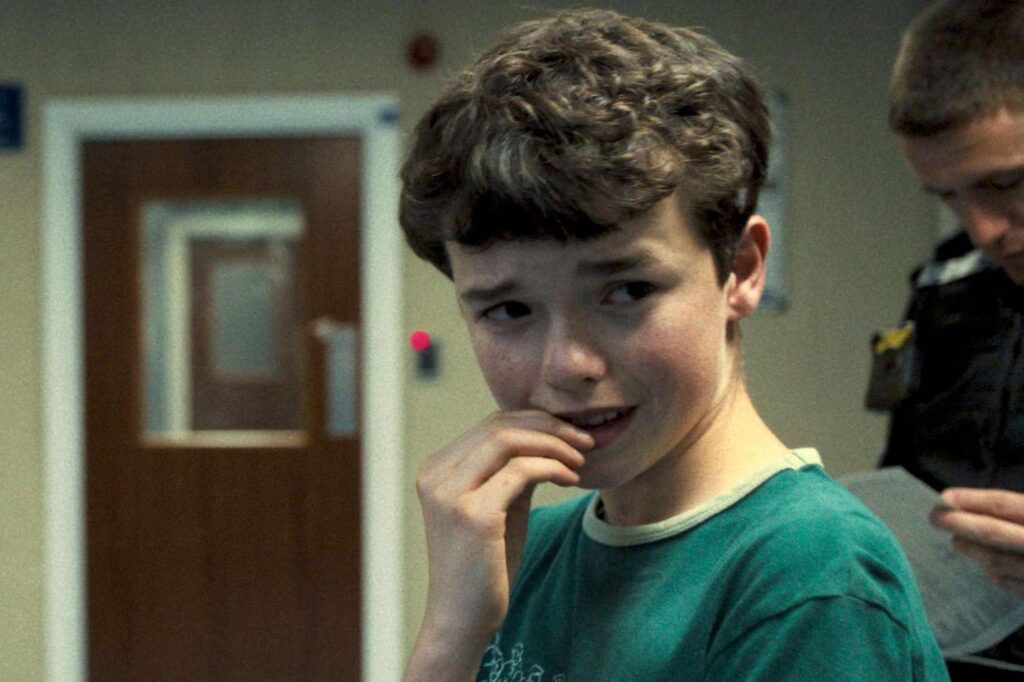Netflix strikes again with Adolescence (2025). The series that captivated audiences. The central theme is the complex relationship between fathers and children, and, most importantly, the relationship between children and their peers.
How well do you know your children? Are you sure that their time at school doesn’t cause panic or discomfort? Let’s explore today how to recognize when a child cannot find common ground with their classmates and what you can do about it.

How can you recognize problems in your child?
Socialization of children carries a lot of pitfalls. It seems that the child copes well, teachers do not complain. Grades at school are great. But for some reason the kid is always droopy and quiet. Maybe the problem is in communication?
Remember: lack of developed soft skills in the child may be the cause of his aggression. Due to shyness or other factors, children do not like to express their emotions verbally. The inability to express anger or anger verbally leads to terrible consequences. Both for the children themselves and for their environment.
According to WHO studies, every seventh child between the ages of 10 and 19 has a psychological disorder. When children fail to get along with their classmates, these conditions can intensify.
Signs to Watch for in Your Child:
- The child dislikes going to school and comes back feeling depressed.
- He never mentions his classmates in stories from school.
- He is afraid to ask classmates for clarification on assignments.
- He avoids attending others' birthdays and doesn’t want to invite anyone to his own.
Have you checked at least one box in your mind? Perhaps you should keep an eye on your child.
Causes of Communication Difficulties
Shyness: It's important to work on building self-esteem. Praise your children for even the smallest successes. Give them more opportunities for independence and encourage their efforts to socialize with peers.
The child does not know how to socialize with his peers: His method of communication is arguments, fights, and skirmishes. Teach children the essential principles of friendship. Explain that friends support each other, come to the rescue, keep secrets, and don't hurt each other's feelings.
Relationships within the family: Perhaps the most important factor. It's essential for children to feel a sense of warmth and support within the family, where they are cared for and loved. A negative atmosphere can aggravate the situation.
Defenselessness: When a child fails to respond to the aggression of other children, he automatically becomes their target. It's important to draw a clear line. Starting a fight is never acceptable, but it's acceptable for children to learn how to respond to offenders (especially boys). It's essential for a child to learn how to defend personal boundaries and respond appropriately to attacks.
Is your child an introvert? Feel the difference: is your child without friends, or does he simply not enjoy spending a lot of time in large, noisy groups? In the first case, try to identify the reasons (mentioned above) and observe the child. In the second case, accept it as a fact.


How can you help your child connect with classmates?
The main rule: under no circumstances do not put pressure on the child. Direct him gently to communicate with peers.
- Listen to and understand your little one. Do not downplay the significance of their problems.
- Be an outside observer and watch carefully what the children do. Only offer assistance when they ask for it.
- Talk through every conflict. Help your child come to the right decision.
- Examples from movies and books can help them understand the situation better.
- You are your child's main support!
What you absolutely must not do:
- Ignore your child’s condition (their complaints and requests for help).
- Force your child to do something they don’t want to do (like reconciling, making friends, or playing with others).
- Convince them that they are absolutely right.
- Interfere in conflict situations between your child and their classmates.
Once the connection with classmates is established, the only thing left to do is to keep a watchful eye. Being on the same page with the people who surround us for most of our lives is important for both children and adults. Be attentive to your little ones—especially to prevent a repeat of the scenario in Adolescence.
We are an online Russian language school for bilingual children. More than anyone else, we know that your child should feel comfortable in the classroom. We strive to create favorable conditions for each student. After the first lessons, if your child feels that something isn't right, let’s find another group or offer individual lessons!
You can try the first free diagnostic lesson right now. Leave your contact details in the form below, and we’ll get back to you as soon as possible!







